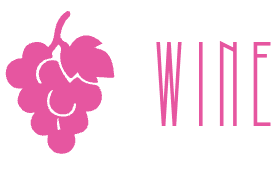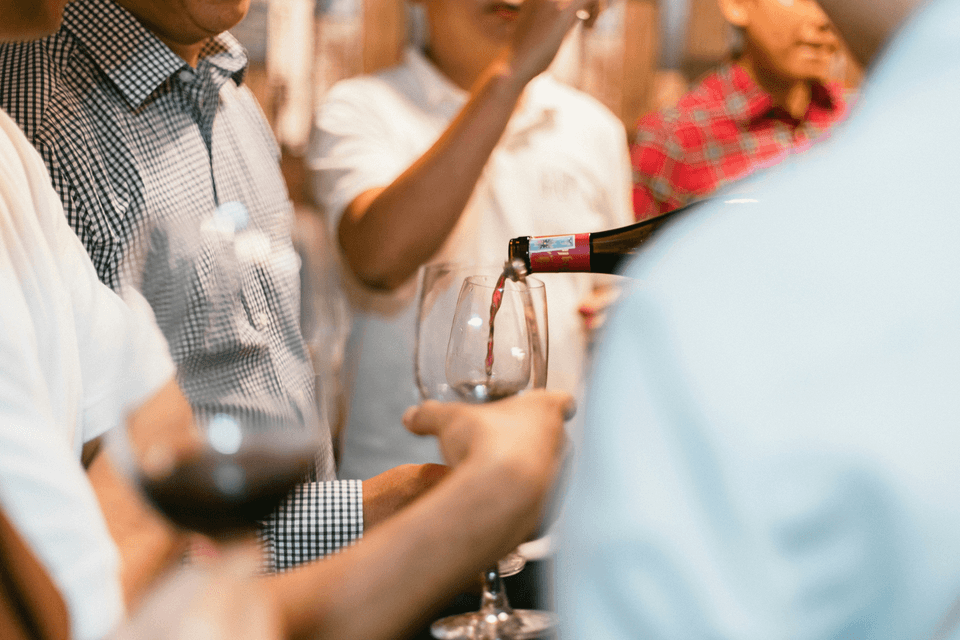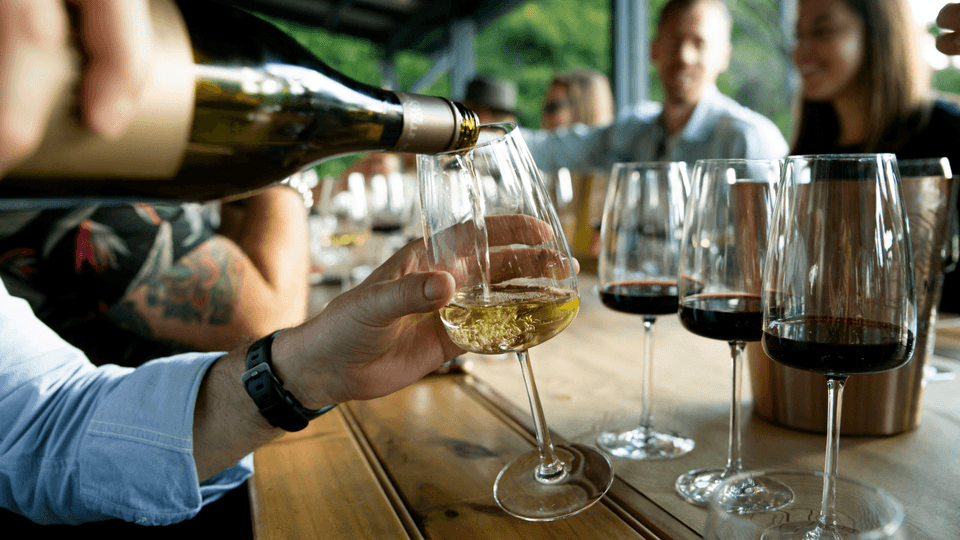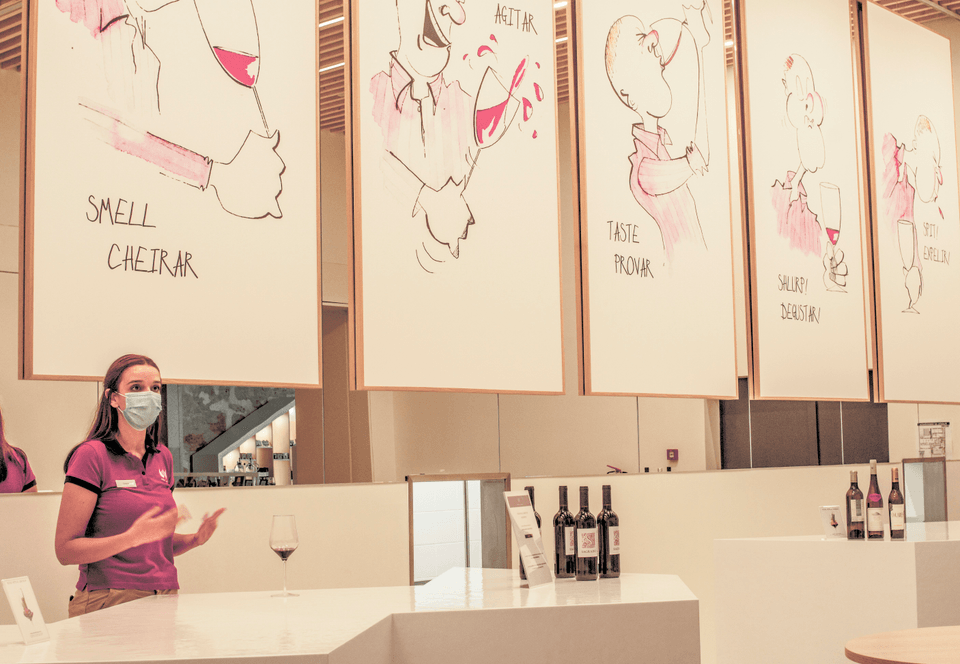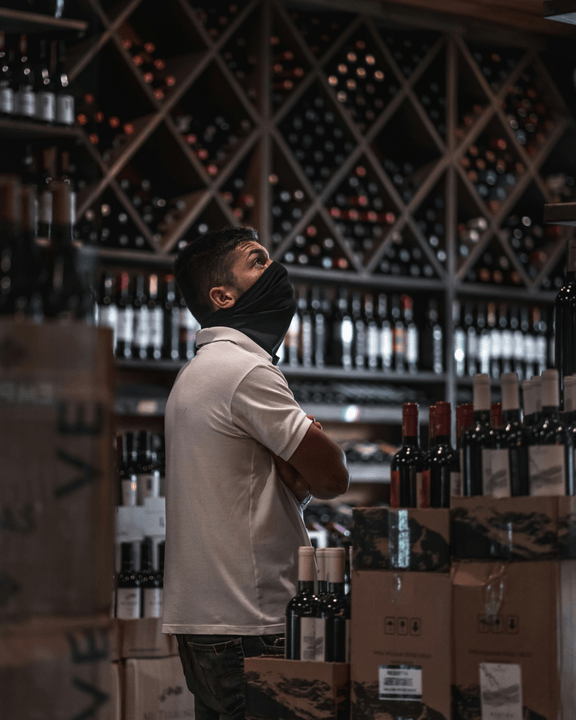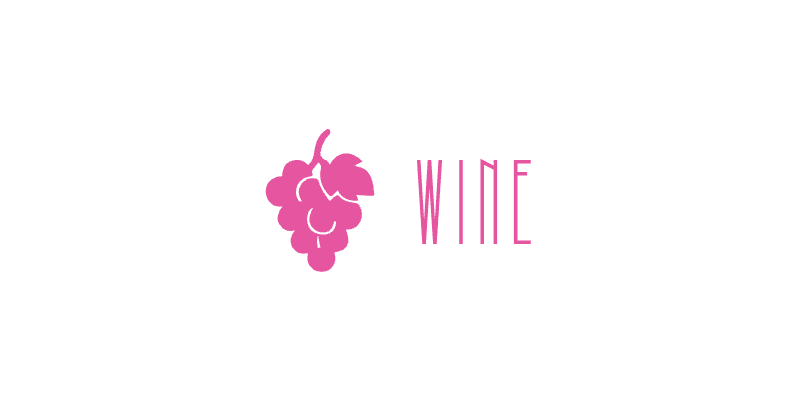
FOR THE PASSION
OF WINE
Expert Wine Tasting
Our international sommeliers provide unparalleled wine tasting experiences, helping you identify the finest selections for your collection.
Investment Opportunities
Join a global network of wine investors and discover lucrative opportunities to invest in premium wines that appreciate over time.
Personalized Consultation
Receive tailored advice from our experts to build a wine portfolio that aligns with your preferences and investment goals.
Featured Wines
Discover our curated selection of exceptional wines, perfect for both connoisseurs and investors.
Expert Wine Selection
Our international sommeliers curate a selection of the finest wines, ensuring quality and authenticity.
Investment Opportunities
Join the largest wine investment platform, where you can invest in premium wines with confidence.
Global Expertise
With 15 years of experience, our team provides insights and guidance for wine collectors and investors alike.
WINEWORLD XPLORER
Award-winning global wine trading and asset management platform
WineWorld Xplorer (Wine) is Asia’s first multi-market wine trading and asset management platform connecting 4 global wine hubs: United Kingdom, France, Singapore and Hong Kong. Wine enables swift multi-currency settlement and offers competent logistics and storage solutions among 4 global wine hubs: Hong Kong, Singapore, United Kingdom and France as a foundation towards eventually building a peer-to-peer wine trading network connecting all key cities of the world among all players in the wine industry – wineries, merchants, wine lovers, investors and opinion leaders.
At the core of Wine, we operate and maintain a real-time database of wines available in 4 global markets (France, United Kingdom and Hong Kong), with average live offer listings amounting to over 100,000 entries. Our users, or functionally speaking, wine traders buy, sell, ship and store wines 24-7 on Wine. They have full access to our wine data analytics and will shortly be the very first to peruse our Big Data enabled fine wine projection tools.
Towards professional wine traders and high-net-worth wine collectors, WineWorld Xplorer aims to enable wines as both a pleasurable liquid to consume, as well as a liquid asset to own. For the broader wine community, WineWorld Xplorer serves as the premier professional reference to help wine lovers understand what and when to buy, sell, drink and invest.
Wine provides a comprehensive spectrum of professional wine services including:
- Buy, bid and sell wines anytime anywhere
- Competitive temperature and humidity controlled wine storage and logistics solution
- Full access to world’s best wine critic scores and reviews
- Individual wine historic price performance and data analytics
- Real-time wine portfolio valuation
- Wine as a collateral loan
- Smart wine bottle track-and-trace provenance tags
- Data-driven wine investment advisory
Wine’s founding team comprises a mix of fine wine specialists, data scientists and award-winning IT programmers. Founder Mariana Lam is a serial entrepreneur in the field of wine starting year 2008. Chief Data Scientist Samuel Sum brings his advanced data analytics and business intelligence solution design expertise, as well as his ardent love for wines, to the table. The team is completed with trilingual speakers fluent in Cantonese, Mandarin and English; all of which are WSET-certified and have worked in various industry roles in Hong Kong and China, USA and Middle East prior.
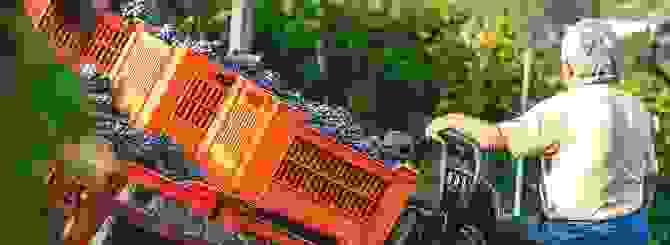
French winegrower releases Palestine cuvée
A winegrower in the central French region of the Côtes d'Auvergne has released a special cuvée in support of the Palestinian cause. Gilles Persilier, who is based in the commune of Roche Blanche, just south of Clermont-Ferrand, produced 1500 bottles of his "Palestine" label and will donate 50 percent of the €10 price tag to the local France-Palestine Solidarity Association.
Persilier, along with Montpeyroux winegrower Yvan Bernard, traveled to the country in 2017, courtesy of the Association, to visit the Al Sanabel fruit and grapegrowing cooperative near Hebron, in the southern West Bank, just south of Jerusalem. Although the cooperative produces no more than grape juice from its vines, Persilier was struck by the experience.
"They are not allowed to use sulfur because they are told it could be used to make a bomb," he told local radio France Bleu in 2018.
The France-Palestine Solidarity Association says the Hebron region was traditionally a fruit-producing region with its produce "once sold throughout the southern West Bank and Gaza".
"Traffic difficulties linked to checkpoints and the numerous constraints imposed by the [Israeli] military occupation, the blockade of Gaza, and competition from Israeli fruit produced in the settlements are causing major sales difficulties," says the Association. "Grapes that do not find buyers are then bought by Israeli companies at ridiculously low prices to be transformed into wine."
"Farmers in the region had responded by organizing a cooperative to transform surplus grapes into pasteurized juice," it said. "This project is seen as an operation to resist the occupation."
Persilier's wine went on sale in Clermont-Ferrand on Saturday (October 4).
CAV empties wine tanks in Languedoc
Direct action winegrower group CAV (the Comité d'Action Viticole, or "Winegrowing Action Group") has once again hit a major wine merchant in the Aude region of southern France, spraying grafitti on the walls and emptying tanks of wine in a protest against unfair wine prices.
Images of a dozen members of the group swooping on a wine producer in Douzens, midway between Carcassonne and Narbonne in the heart of the Corbières wine region, at around 11.30pm October 30, were relayed by several sources. Although local newspaper L'Indépendant named the organic Domaine Py estate, it appears French wine news website Vitisphere was correct in stating the victim was in fact the Château de la Bosse – a négoce operation acquired by the Bordeaux-based Raymond Vins in 2016.
"On the façade, a message graffitied in capital letters set the tone: "CAV [caution] prices'," said L'Indépendant. "Moments later, four people entered the cellar and opened several vats. Hundreds of liters of wine escaped and spilled onto Avenue des Corbières, flowing down the road in a red stream."
According to Vitisphere, Raymond Vins was "clearly targeted" for its "very aggressive policies on [wine] purchase prices" in the region.
Tensions in the region had been brewing since the end of harvest, with demonstrations planned for last Friday. Indeed, it appears this was a "warning shot" (L'Indépendant) to wine merchants in the area.
"If the location was not chosen at random, neither was the period," said Vitisphere on Wednesday. "The usual harvest meeting between representatives of production and trade in Languedoc is looming on October 2, and the economic situation meeting for production on October 9."
The CAV is long-standing, shady direct action viticulture group operating the Languedoc for decades. For more on their activities see Bomb Blows Up French Wine War and More Violence in Southern France (all from last year) as well as "Tensions rise in southern France" from Threat Claims in Winemaker Libel Saga (in 2023).
With a less than stellar 2025 harvest and aggressive pricing policies from merchants with a dwindling consumer base, the region will be lucky if there is not more violence in the coming months.
French actor launches Bordeaux whiskey
French film actor and Oscar-winner Jean Dujardin, who won the Oscar for best actor in his role in the silent 2011 movie The Artist, became the latest name to join the clan of celebrities in the world of wine and spirits.
Dujardin, who also played the title role in the James Bond spoof spy franchise OSS117, launched his first whiskey label, dubbed Aventure, in Bordeaux on Wednesday alongside three banker friends. The company – the Bordeaux Distilling Co. – was initially conceived by the bankers when they were working in the City of London. The company was founded in 2018.
One of their number, Éric Lafon, who knew Dujardin from when they used to surf together on the Atlantic coast of the Médoc, got in touch with the actor, who agreed to become a co-founder.
"I found the idea very attractive," Dujardin told an interviewer for local television news TV7 (part of the local Sud-Ouest newspaper group).
"It's not a bad thing to take a little break from Bordeaux [wine] and go towards a whiskey, a French rye whiskey, from Bordeaux, made in Bordeaux, to better come back to red wine and grands crus," he said.
Dujardin himself was in Bordeaux to promote the launch of the whiskey on Wednesday. The whiskeys are produced from organic French rye and aged in French and American oak in the group's warehouse in Bordeaux.
"Unlike barley, it's a malt that requires continuous mixing in the mash. So it may be more technical, but the four of us wanted this whisky to be drier and sharper," fellow founder Antoine Gravouil told regional newspaper Sud-Ouest this week.
The launch party saw three age expressions (across 4000 bottles) launched onto the market. The Bordeaux Distilling Co. has already produced a range of gins and other, non-aged, spirits, since its foundation.
Pago de Tharsys approved by EU
The European Union has approved the creation of a new Vino de Pago appellation in the Valencia region of Spain. Pago de Tharsys, a well-established producer in the town of Requena became the latest property to join the ranks of the (often controversial) Vino de Pago (estate-based) appellation.
The Pago de Tharsys estate, located some 70km (40 miles) due west of Valencia, dates back to the early 19th Century and now spans some 14 hectares (34 acres) of organically-run vineyard. The winery produces red, rosé and white wines, including a number of Cava labels.
The Vino de Pago title (which is based solely around the vineyard holdings of a single estate, and as such is not necessarily geographical) has courted controversy since its inception, with many estates holding the title based in Spanish regions, such as Castilla La Mancha, which are better-known for bulk (rather than quality) wine production. Some of the estates are also owned by wealthy and influential Spaniards.
Wine "not incompatible with sport"
Spanish Olympic medalist Saúl Craviotto said this week that wine is "not incompatible with sport", claiming that a "moderate" approach to the drink is part of his routine. Craviotto, a canoeist whose medal haul includes six Olympic gongs, including two golds, made the statement as he became the ambassador for the Coto de Caleruega Ribera del Duero label created by the Rioja-based Barón de Ley wine group.
"I love going out to eat with my wife, and having a couple of glasses of wine is a real pleasure," he told Spanish celebrity magazine Hola. "It depends on the moment, but I like both red and white wines, sparkling wines, and so on."
"[The wines are] always consumed within reason and common sense," he added. "Let's not forget that it's an inseparable part of the Mediterranean diet."
Craviotto, a sprint kayaker and winner of Spain's Celebrity Masterchef in 2017, was speaking at the release of the Coto de Caleruega Roble 2024. One of Spain's greatest-ever athletes, Craviotto is also well-known as a gastronome, regularly uploading recipes to his Instagram channel.
But he told Hola there were significant parallels between the world of sport and that of wine.
"[The] effort, the sacrifice, the teamwork – a lot of which is not seen," he said. "We often open a bottle of wine, have a glass and don't stop to think or analyze everything that lies behind it: the years that must pass, the care of the vineyard, the meticulous production, the time in the barrel and the bottle, etc. In the world of sport, the same thing happens: we spend four years preparing for a test that lasts just a few minutes, in which you risk everything - like when you taste a wine - and it's that effort people don't usually appreciate."
Popular Investment Wines
The fine wine investment market deals with only a tiny proportion (less than 0.1 percent) of the world's wine. The Grand Cru wines of Bordeaux and Burgundy have long dominated the scene, but wines from other regions are now gaining traction. Below is an overview.
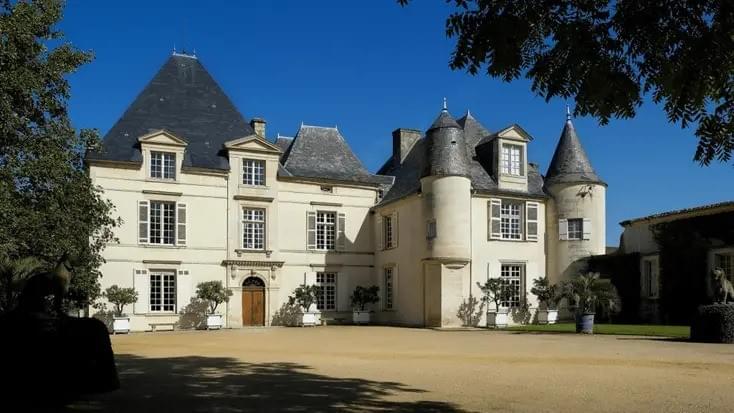
Chateau Haut-Brion in Pessac-Leognan | ©Chateau Haut-Brion
Table of Contents
- Bordeaux Investment Wines
- Burgundy Investment Wines
- Rhône Valley Investment Wines
- Italian Investment Wines
- American Investment Wines
- Australian Investment Wines
Bordeaux Investment Wines
Traditionally, wine investment portfolios have focused almost exclusively on classed-growth red Bordeaux (those of the 1855 Classification) from highly rated vintages. These wines have a long-established secondary market, and have built up good reputations for consistent quality and cellaring potential.
On Bordeaux's 'left bank', chateaux Latour, Lafite-Rothschild, Margaux, Mouton-Rothschild and Haut-Brion remain reliable as high-grade investment wines. Across the Garonne in the Libournais (the 'right bank'), plush Merlot-based wines from Pomerol properties Le Pin, Petrus, Lafleur and La Fleur-Petrus are particularly popular on the US fine wine market, as are Saint-Emilion's top investment wines Angelus, Ausone, Cheval Blanc and Pavie.
Burgundy Investment Wines
Although less commonly traded, top Burgundy (both red and white) fetches some of the highest prices ever paid for wine. The best investment wines from Burgundy are the Grand Cru wines from domaines de la Romanée-Conti, Henri Jayer, Comte Georges de Vogue, Georges Roumier, Armand Rousseau, Leflaive, Leroy, Meo-Camuzet and Coche-Dury.
The finest Burgundy wines are made only in tiny quantities, which are snapped up by Burgundy enthusiasts on release. When they re-appear on the market, their scarcity can drive prices to astronomical heights. See The World's Most Expensive Wines, a list dominated almost entirely by Grand Cru Burgundy.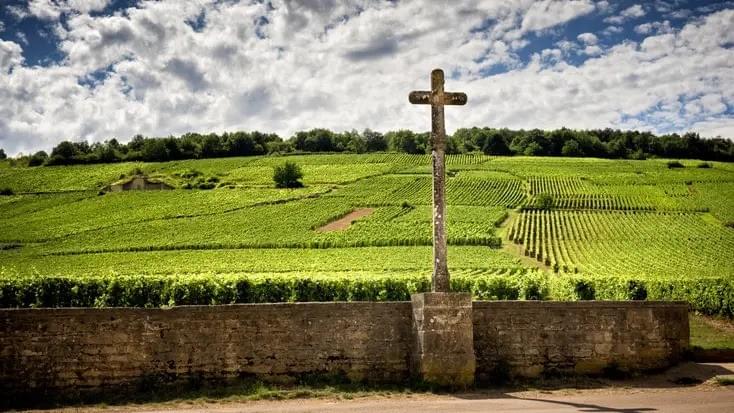
Many would argue that the world's greatest vineyards lie in the Burgundian commune of Vosne-Romanee. | ©Massimo Santi / www.shutterstock.com
Rhône Valley Investment Wines
The Rhone Valley produces few wines capable of commanding such high prices as top-flight Burgundy or Bordeaux. Nonetheless, it offers a handful of attractive wine investment prospects, most obviously those from Jean-Louis Chave, particularly the Cuvee Cathelin and Vin de Paille, Paul Jaboulet's Hermitage La Chapelle, Guigal's Hermitage Ex Voto and 'La-La' wines (La Landonne, La Turque and La Mouline), Chateau de Beaucastel's Hommage à Jacques Perrin, and any of the top-end Châteauneuf-du-Pape wines from Chateau Rayas (the "standard" Réserve, the Pignan Réserve, or the Réserve Blanc).
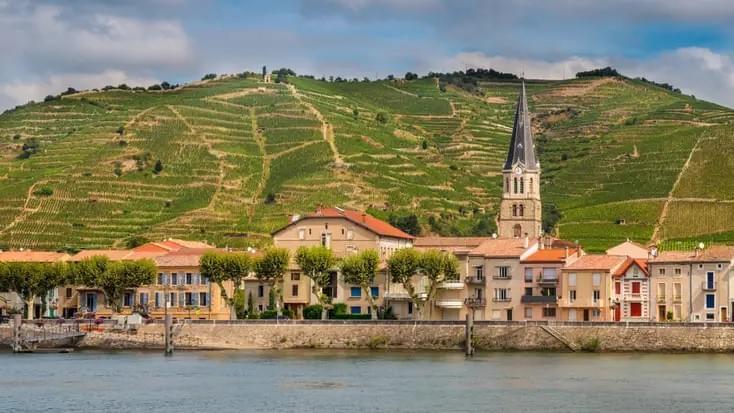
Tain and the fabled hill of Hermitage | ©Rudmer Zwerver / www.shutterstock.com
Italian Investment Wines
Among Italy's top investment wines are the SuperTuscans Sassicaia, Solaia, Masseto and Ornellaia, and other Tuscan classics such as Brunellos from Fattoria Poggio di Sotto, Casanova di Neri and Gianfranco Soldera and the Vino Nobile wines Avignonesi Riserva Grandi Annate and Nocio dei Boscarelli.
Piedmont's contribution to the world of investment wine includes Barolos such as Giacomo Conterno's Monfortino and Cascina Francia, the Monprivato wines of Giuseppe Mascarello and Bartolo Mascarello, Bruno Giacosa's Collina Rionda, Falletto Riserva and Le Rocche del Falletto, and Aldo Conterno's Granbussia. Barolo's neighbor Barbaresco produces a few investment-grade wines, notably two Roagna I Paglieri wines (Crichët Pajé and Pajé Riserva) and the Gallina and Albesani Santo Stefano by Bruno Giacosa.
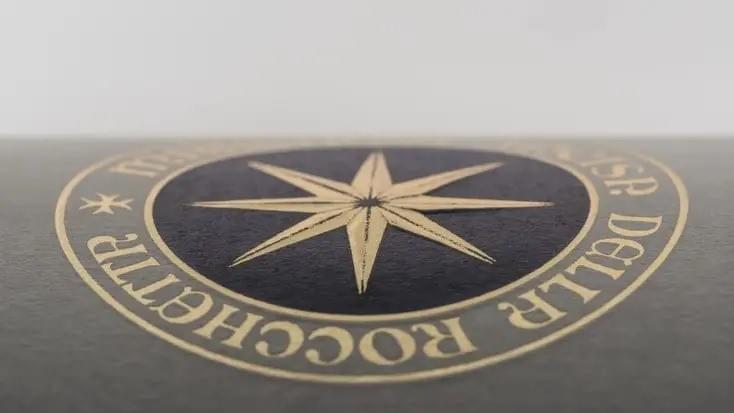
The Tenuta San Guido (Sassicaia) logo familiar to many wine lovers around the world | ©Tenuta San Guido
American Investment Wines
The USA is the New World's dominant force when it comes to investment wines, rivaled only by Australia. Although Chile, Argentina, South Africa and New Zealand do produce expensive, top-quality wines, very few have yet suggested themselves as reliable investment wines.
The United States' top investment wines are all Californian, and most are collector's items produced only in small quantities. As such, these wines are not traded on the secondary market as often as French investment wines. The list is dominated by Napa Valley Cabernet Sauvignons such as Screaming Eagle, Schrader Cellars' Old Sparky, T6, RBS, CCS and Beckstoffer To Kalon , David Abreu's Thorevilos and Madrona Ranch, and two wines from the Kapcsandy Family State Lane Vineyard (the Grand Vin and Roberta's Reserve). Rounding out Napa's contribution are classics such as Christian Moueix's Dominus, the Special Selection from Caymus, Mondavi's Opus One and the IX Estate by Colgin.
Outside Napa, Sonoma County's Vérité winery produces three wines (La Joie, La Muse, Le Désir) whose value has climbed consistently since they were awarded 100 Parker Points. Further south, in the Central Coast, Sine Qua Non produces a complex maze of single-vintage cuvees which could well lead to good investment returns and Ridge's reliably majestic Monte Bello from the Santa Cruz Mountains continues to increase steadily in value.
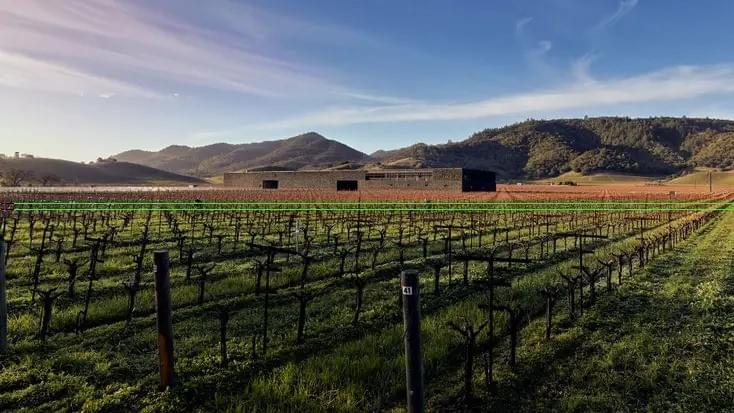
The Dominus winery by Herzog and de Meuron (1997) in Yountville, Napa Valley | ©Dominus
Australian Investment Wines
Australia is home to a handful of wines now recognized for their investment potential. One producer in particular, Penfolds, produces several wines have consistently increased in value over the past decade, Bin 95 Grange, RWT, Bin 389 and Bin 407. Other Australian investment wines include Jim Barry's The Armagh, the Quintet by Mount Mary, Henschke's Hill of Grace and The Laird from Torbreck.
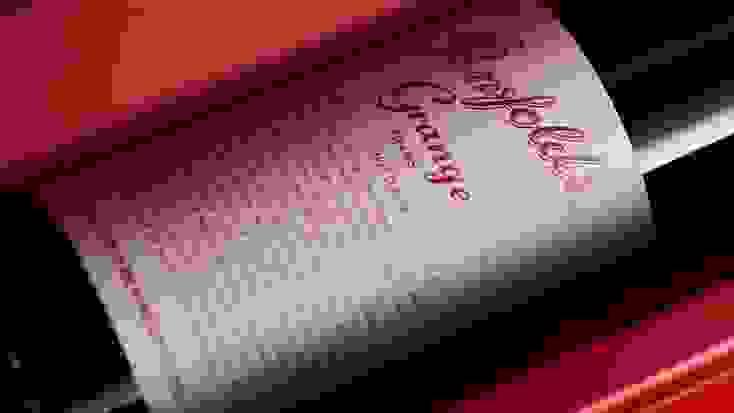
Penfolds Grange | ©Penfolds
Meet Our Experts
Learn about the qualifications and backgrounds of our dedicated sommeliers.
Certified Sommeliers
Our team comprises certified sommeliers with years of experience in wine tasting and selection.Global Expertise
Our experts have traveled the world to source the best wines, bringing you insights from renowned wine regions.Passionate Professionals
Driven by a love for wine, our sommeliers are committed to enhancing your wine journey through education and expertise.
